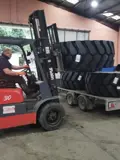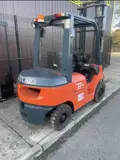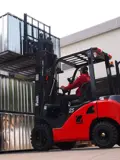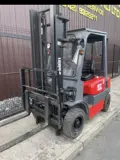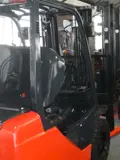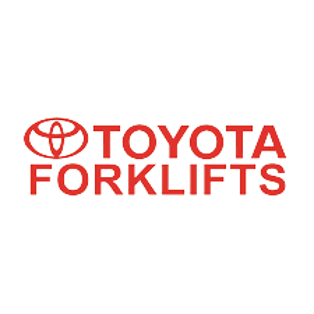 |
 |
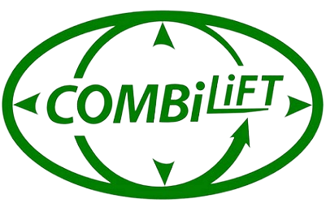 |
 |
We have new and used diesel forklifts in stock ready to go. We provide many different brands of forklifts to choose from. |
|
|
Better performance. Acceleration, forklift speed, driveline torque at low RPM. We offer forklifts for sale and forklifts for hire whether new or used. |
|
|
More power. Diesel forklifts are more powerful and cost less to operate. |
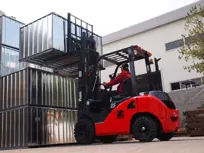
Diesel forklifts
Diesel forklifts are a type of forklift that is powered by an internal combustion diesel engine. They are commonly used in outdoor and heavy-duty applications such as construction sites, lumber yards, shipping ports, and other industrial environments. Here's an overview of diesel forklifts:
Advantages of Diesel Forklifts:
-
High Power and Torque: Diesel engines provide high power and torque, making diesel forklifts suitable for heavy lifting and demanding tasks.
-
Durability and Longevity: Diesel engines are known for their durability and long lifespan, making diesel forklifts a reliable option for rugged environments and continuous use.
-
Fuel Efficiency: Diesel engines are more fuel-efficient than gasoline engines, which can result in lower fuel consumption and operating costs over time.
-
Suitable for Outdoor Use: Diesel forklifts are well-suited for outdoor applications due to their ability to operate in various weather conditions.
-
Quick Refueling: Refueling diesel forklifts is relatively quick compared to recharging electric forklift batteries, which can contribute to higher productivity.
-
Towing Capacity: Diesel forklifts often have a higher towing capacity compared to electric or propane-powered forklifts, making them suitable for towing trailers or heavy loads.
Considerations for Diesel Forklifts:
-
Emissions: Diesel forklifts produce exhaust emissions, including particulate matter and nitrogen oxides. This can be a concern in indoor environments or areas with strict emission regulations.
-
Noise Levels: Diesel engines tend to be noisier than electric or propane-powered forklifts. Noise considerations may be important, especially in noise-sensitive environments.
-
Maintenance: Diesel engines require regular maintenance, including oil changes, filter replacements, and other upkeep. Maintenance costs can vary based on usage and maintenance practices.
-
Fuel Storage: Diesel forklifts require on-site fuel storage, which can involve safety considerations and additional space requirements.
-
Initial Cost: While diesel forklifts may have a lower upfront cost compared to electric forklifts, their long-term operating and maintenance costs should be factored in.
-
Indoor Use Limitations: Due to emissions and noise concerns, diesel forklifts are generally not recommended for indoor use unless they are equipped with advanced emission control technologies.
-
Emission Regulations: Depending on your location and local regulations, there may be restrictions on using diesel forklifts, especially in urban or environmentally sensitive areas.
When considering a diesel forklift, assess your specific operational needs, including the type of loads you'll be handling, the working environment, and any emission regulations in your area. It's advisable to consult with forklift dealers or professionals to determine the best diesel forklift model for your requirements and to ensure compliance with local regulations.

